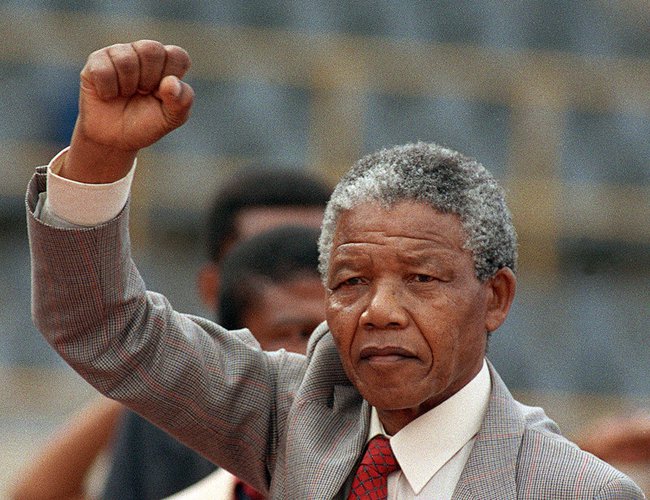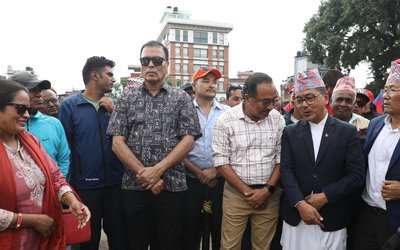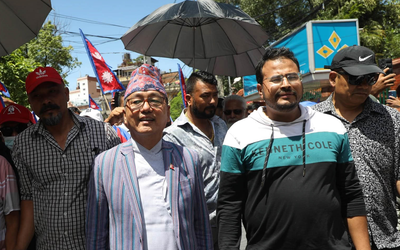
He who has a why to live for can bear almost any how”. ― Friedrich Nietzsche
Nelson Mandela was born on July 18, 1918. Nelson Mandela was a South African political leader who underwent one of the severest sufferings in world political history. He and other African National Congress leaders were charged with conspiracy to overthrow the government, and were given life incarceration. Mandela served the prison sentence on RobbenIsland(1964-82), Pollsmoor prison(1982-1988) and Victor Verster prison (1988-1990). He was confounded in a concrete cell measuring 8 feet by 7 feet with a straw mat. He had to sleep naked only in shorts on a cement floor that became damp and cold during the rainy season on Robben island.
The Black leader who championed the freedom and equality of African people was verbally and physically harassed by several white prison wardens. Mandela was assigned to break rocks into gravel and to work in a lime quarry in the scorching heat of the sun. The glare from the lime severely damaged his eyesight. He was permitted one visit and one heavily censored letter every six months.
Mandela was denied to attend family funerals of his mother and of his elder son Thembi, who was killed in a car accident. His wife Winnie was regularly detained by the government, subjected to house arrest, kept under surveillance, imprisoned and banished to a remote area. At Pretoria Central Prison she was solitarily confined, tortured and beaten. His and Winnie’s prison sentence deprived his two daughters of parental care. All these deeply agonized and depressed Mandela.
Many people who underwent such atrocious times have even resorted to ending their lives. Mandela, on the other hand, showed remarkable patience and positivity, and he emerged a winner. How it became possible is the essence of this writing.
Another remarkable figure who suffered utterly in history was an Austrian psychiatrist and Holocaust survivor, Viktor Frankl. Mandela’s epic tolerance and triumph over gravest of adversity can be analyzed associating with the idea propounded by Frankl.
Frankl theorized that when humans are bound to suffer -no matter what the severity- they have the ability to find meaning in the situation. He stated that the main motivation for living is the will to find meaning in every moment of life and this can be achieved through engaging in meaningful work.
Whether Nelson Mandela knew about Victor Frankl’s theory or not may be a matter requiring further research, but he lived by the psychiatrist’s principles. Mandela made a conscious commitment to meaningful values and goals, which was putting an end to racial discrimination, indignity and Apartheid - institutionalized racial segregation - and the prevalence of social justice in South Africa.
Frankl believed that the drive to find meaning gives people the resilience necessary to overcome painful experiences. He opined that life is not the quest for pleasure, power and riches but the quest for meaning. To assert his thought, in his widely known book Man’s search for Meaning, Frankl quoted Friedrich Nietzsche who stated that he who has a “why” to live for will be able to bear almost any “how”.
Mandela found meaning in fighting for realizing the dream of a country where all people were free. He had found his ‘why’. So, he could bear gravest ‘hows.’ Mandela had seen the suffering of his people, who were denied their most basic rights. Their lands were taken by the outsiders and they were working in their own land living a slave-like life with a meager salary. They had no health and education service. They were bound to live an undignified life.
Now, the question that arises is how Mandela could have realized meaning in his suffering.
Victor Frankl’s most memorable idea that challenged the conventional social perception of human suffering must have been that between stimulus and response to it, there is a space and in that space, humans have been gifted with the power to choose their response. In the way, they choose their response to the stimulus or the circumstance lies their growth and their freedom.
Research into Nelson Mandela’s life of imprisonment unveils that he best-used human power to choose a positive response or the right attitude to the adverse situation, which he achieved by reframing problems, practicing gratitude, nurturing social support and distracting by involvement in available activities.
Reframing problems helps to view stressful situations from a more positive perspective. Mandela was able to auto-suggest that his dire suffering was nothing in comparison to the realization of the dream of a free nation of his people in the long run. He told himself his suffering could go down in the annals of history as sacrifice given for the dignity of African people.
Practicing gratitude helped Mandela to reflect on all the things he could appreciate in his life when suffering would get him down. Mandela would be grateful to prison guards and would thank them whenever they heard even the smallest of his pleas.
Nurturing Social support intensifies connection and can be crucial to relieving the pain of one another during hard times. Nelson Mandela and his imprisoned friends listened to one another and shared their innermost pains. Mandela kept kindling their hopes of a happy future. Their commitment to the common principles and goals also strengthened their friendship.
Distracting from problems by involving in available activities was applied by Mandela. He involved in boxing and other athletics, engaged in discussions with friends, cracked jokes and distanced himself from suffering. He would spend time gardening too. Humor helps man rise above predicament. Mandela often used even self-deprecating humor to shift attention from the problems and expanded within himself the space to search for the meaning of his suffering.
Nelson Mandela drew inspiration and meaning from the poem ‘Invictus’ denoting ‘unconquered’ by the nineteenth-century writer, William Ernest which he used to recite time and again in prison. Mandela believed he was the captain of his soul and only he could be responsible for whatever happened to him.
The Anti-Apartheid leader enunciated that to achieve the ideal of a free society in which all persons live together in harmony and with equal opportunities, he was prepared to die and he was true to his words. It is this high sense of purpose that made his every minute meaningful and ready to bear the severest of suffering. He understood that the white oppressors could imprison his body, not his mind. The meaningfulness he found in fighting for social justice and freedom for South Africans helped him turn brutal 27 years of imprisonment into strength.
(Mahesh Koirala is an analyst Master’s degree in Political Science and can be contacted at maheshkoirala2000@gmail.com)
- Global Race To Find The Vaccine And Nepal
- May 09, 2020
















